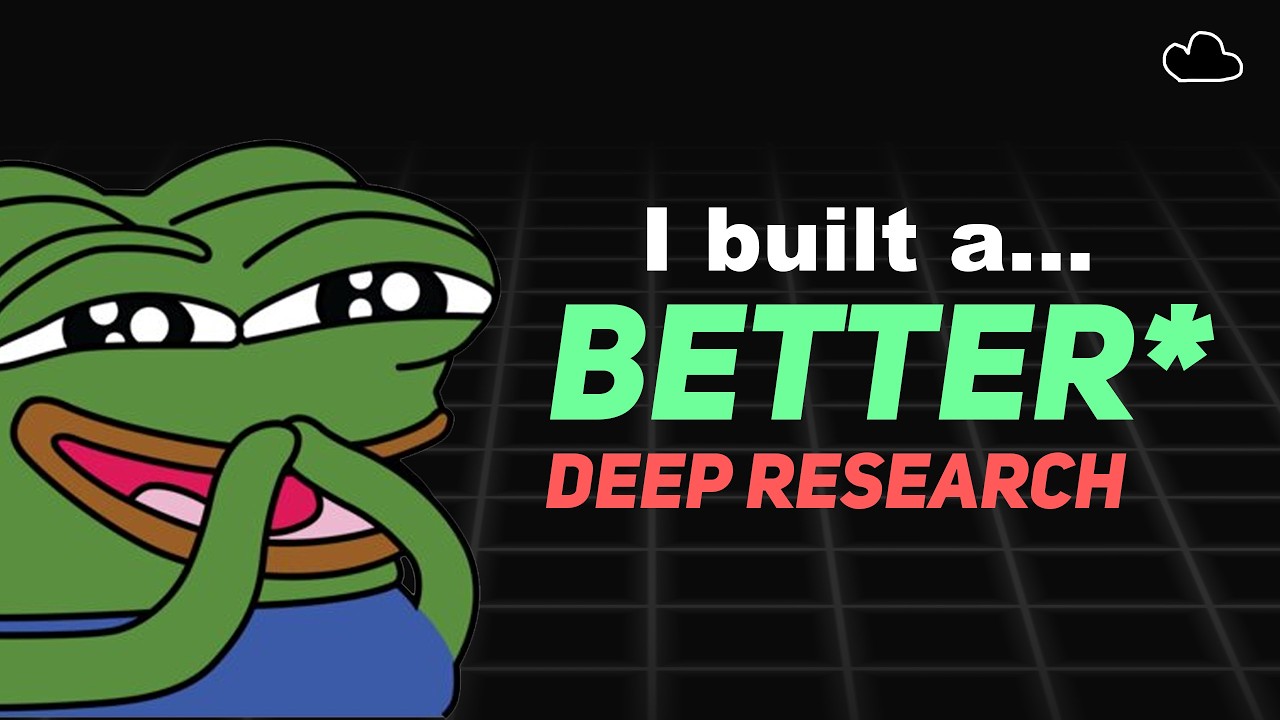The creator introduces findmypapers.ai, a custom research tool designed to outperform existing AI paper search engines by providing faster, more accurate, and relevant results from over 300,000 AI-related papers, primarily from arXiv. The platform emphasizes high-quality, hallucination-free retrieval, plans to expand to other scientific fields, and invites community support through Patreon to fund ongoing development and open-source initiatives.
The creator introduces a new research tool called findmypapers.ai, which aims to outperform existing AI research engines like Deep Research. Current tools from major AI labs are criticized for their inefficiency and poor quality, often hallucinating information, providing bloated results, and relying heavily on SEO-optimized content from search engine APIs. In response, the creator built a custom pipeline that stores over 300,000 AI-related research papers, allowing for faster and more accurate semantic searches without the limitations of agentic web apps or reliance on search engine APIs.
The new engine is designed to address the shortcomings of existing solutions by providing more relevant, non-SEO biased results, and enabling users to find papers on niche topics, ask conceptual questions, and retrieve specific quotes from papers. It is capable of quickly delivering results in under two minutes, significantly faster than other deep research tools that can take several minutes. The system is built on a straightforward machine learning pipeline, avoiding complex or proprietary frameworks, which contributes to its efficiency and quality.
While the tool excels in retrieving AI and machine learning papers from archives like arXiv, it currently has limitations, such as only indexing papers from this source and not including non-archival content like blogs or recent models like Llama 4. It also cannot display images yet, but plans are in place to expand its indexing to include other scientific disciplines like biology, chemistry, and physics within a month. The creator emphasizes that the focus is on high-quality, hallucination-free results, even if it means higher operational costs, which are currently supported by a paid subscription model.
The creator invites users to support the project through Patreon, which helps fund hardware and infrastructure costs, and highlights that a portion of profits will go toward open-source initiatives like arXiv. They offer an early beta discount code for new users and a free tier with limited searches, emphasizing the significant difference in source diversity and quality between free and paid plans. Future features planned include better citation referencing, image integration, and other quality-of-life improvements to enhance user experience.
Overall, the video showcases a powerful, custom-built research engine that aims to revolutionize academic and technical research by providing faster, more accurate, and more relevant paper retrieval. The creator expresses enthusiasm about the project’s potential and encourages support from the community to help expand its capabilities and coverage across scientific disciplines. They conclude with a personal reflection on the joy of building such tools and the importance of understanding coding and development processes.
